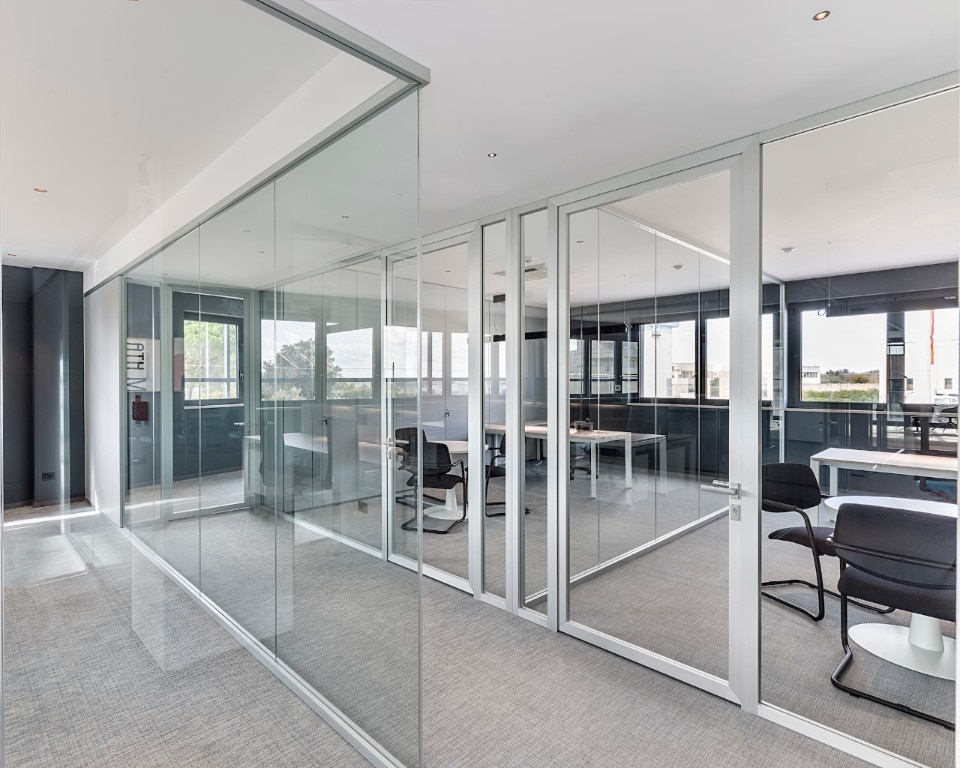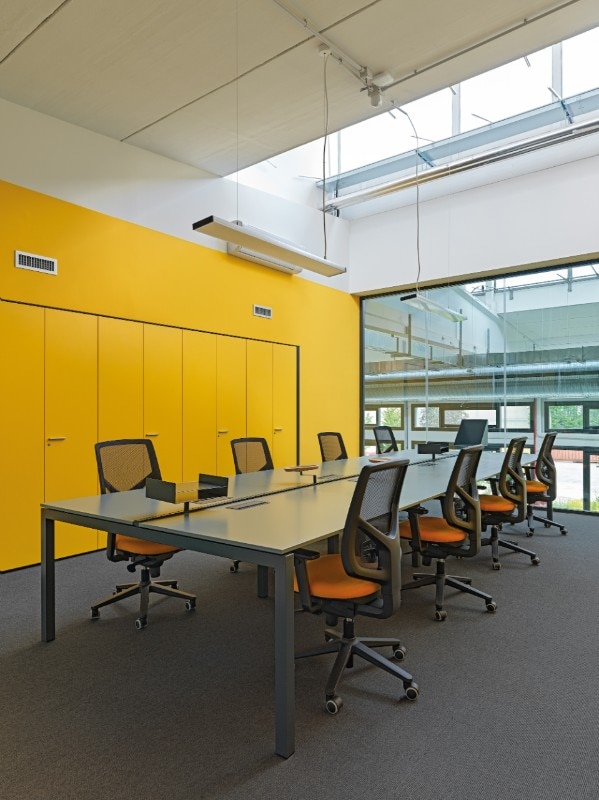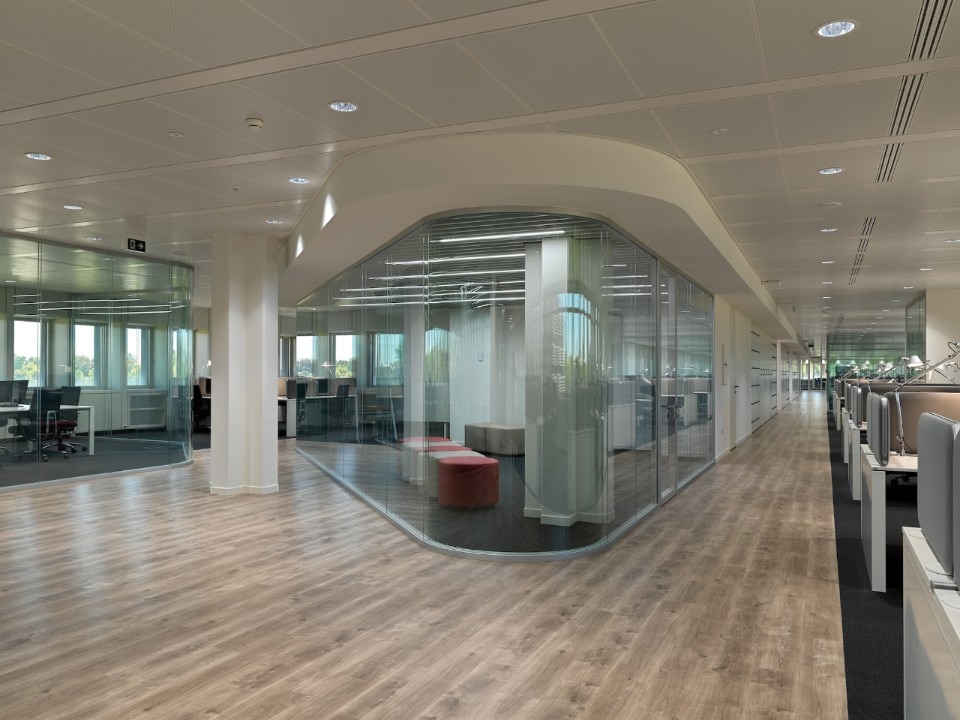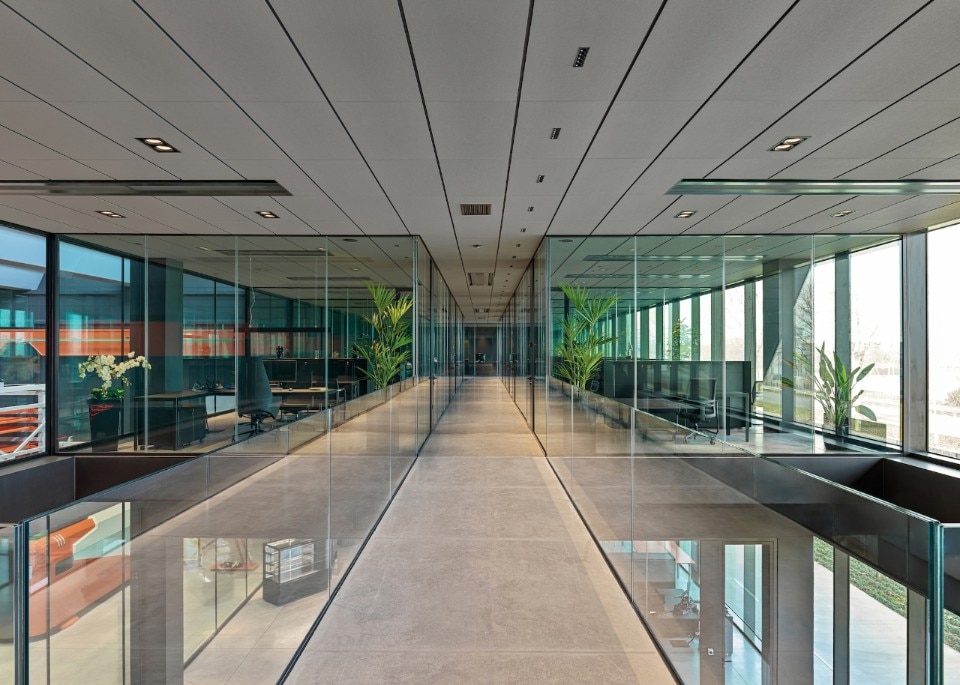Almost 70 years in the history of an Italian industrial group, that has accompanied and anticipated the contemporary challenges of architecture, investing in the modular construction of partitions with a holistic approach capable of going “from the spoon to the city”.
In the history of construction, for a long time, it was technical progress that brought innovation; it took a long time for a shift in thinking to change things, an intuition on how to innovate the process, on how to build, rather than with what.
Prefabrication, conceiving construction as an assembly of parts rather than a transformation of material on site, characterised the 20th century in this sense, and modularity was its most advanced evolution, with an unparalleled cultural and social impact: just think of Jean Prouvé’s several patents, such as the Les Jours Meilleurs houses for the Emmaüs charity association, which could be assembled in less than 7 hours as early as 1956.

Evolution starting from an intuition, from a change of point of view: this is what we discussed with Massimo Mangini, today at the helm of Mangini Group, an industrial reality started from this very transition to perform a unique growth in its sector. From an initial production of plasterboard elements, the group has moved towards modular partitions, not only covering the spectrum of their possible applications, but also expanding it. “More than a shift, it was an addition”, Mangini told us, “an addition compared to the so-called dry construction systems, those linked to the world of plasterboard and often misunderstood as prefabricated elements: we saw in mobile partitions the way to the true prefabrication of interiors.

After 68 years of presence on the market, today we can portray Mangini Group as a company that invests in the design, production and installation of mobile partitions and modular prefabrication systems, as well as high-tech complements and systems, taking the combination of design and performance as its guiding light: the former has been the terrain of exploration in recent decades; the latter the group's industrial origin, its technical know-how, which today makes possible the seismic, fire, acoustic and environmental certification of each of its solutions.
“In a hospital, a patient room is usually made of plasterboard: using panelled partitions, the finishes can come close to the hôtellerie level, giving the patient a sense of home instead of an alienating place. From there, we can move on to building modular hotels, as well as modular housing, with a system capable of guaranteeing the seismic tightness of the whole, adapting to different applications, from hyper-technological surgery rooms to luxury hotel room”.

A story of incremental additions: from the transition to the modularity that started in the workspace realm, in offices, to its application in the pharmaceutical and healthcare sectors with clean rooms, then to hospitality, up to the turnkey dimension owing much of that idea of total design developed first with the Arts and Crafts movement, and then with Bauhaus.
“It's a holistic approach”, Mangini explained, “we manage to be multi-channel, proposing modularity and flexibility in different areas of living, and to offer a bottom-up solutions, where we start from the module and we get to deliver an entire external volume as well. Through the contribution of a division that creates turnkey solutions, the whole process is in fact developed in-house.

Such image of uniqueness in a global and competitive marketplace stems from several innovative gestures, going way beyond technique.
First and foremost, it is a matter of mindset and vision. “Someone much more famous than me used to say ‘Stay hungry, stay foolish’, but I would add ‘stay in action’’: this is Mangini's way of summarising the recipe for the exponential growth in size and operational fields that his group has experienced in recent years. A series of ideas and decisions that at first might have been considered crazy, but which proved to be true and effective innovations, once the team had the courage to implement them, as was the case with the six modular Covid Hospitals developed and built during the pandemic, delivered ready to use complete with equipment and facilities in 54 days: “we even delivered one day early, and that meant saving lives”.
Then comes the relationship with designers, the true playmakers of a design and construction process of which Mangini can guarantee complete control. “‘To designers, we are an amusement arcade, we will always say yes to their requests, unless we’re not allowed by physics”. It is an osmosis between design and product that is part of the Mangini philosophy: offering consultancy support to designers first, then developing the results, to the point that new product typologies are often derived from customized solutions created for designers.

And again, growth as expansion. The last few years have been years of integration of new know-how through the acquisition of various companies – such as Nicomac with its mastery of the clean room process – and new operating sectors, but above all of an increasingly larger and younger team that proves to be a fundamental driving force in devising new strategies. Years of integration for new markets as well: from Italy, the origins, it extended to the United States – currently the second largest market after the creation of a hub operating on the whole group’s product range – then Europe, France, Switzerland, Germany, the Balkans, North Africa, the Arab countries and Armenia, and a return to China after a break following a decade of intense exchange.

Mangini’s dimension takes on the adjectives of contemporary dimension: holistic, and global. Just as twentieth-century experiments had responded to a world that was growing and becoming more and more populated, today's challenge is to accompany a world that is becoming more and more connected, and faster in formulating new needs. A challenge that takes shape in living spaces, dwelling spaces, where the flexibility of modular construction has proven to play an increasingly crucial role.
- Brand:
- Mangini Group
- Web site:
- workspace.mangini.it/en



















